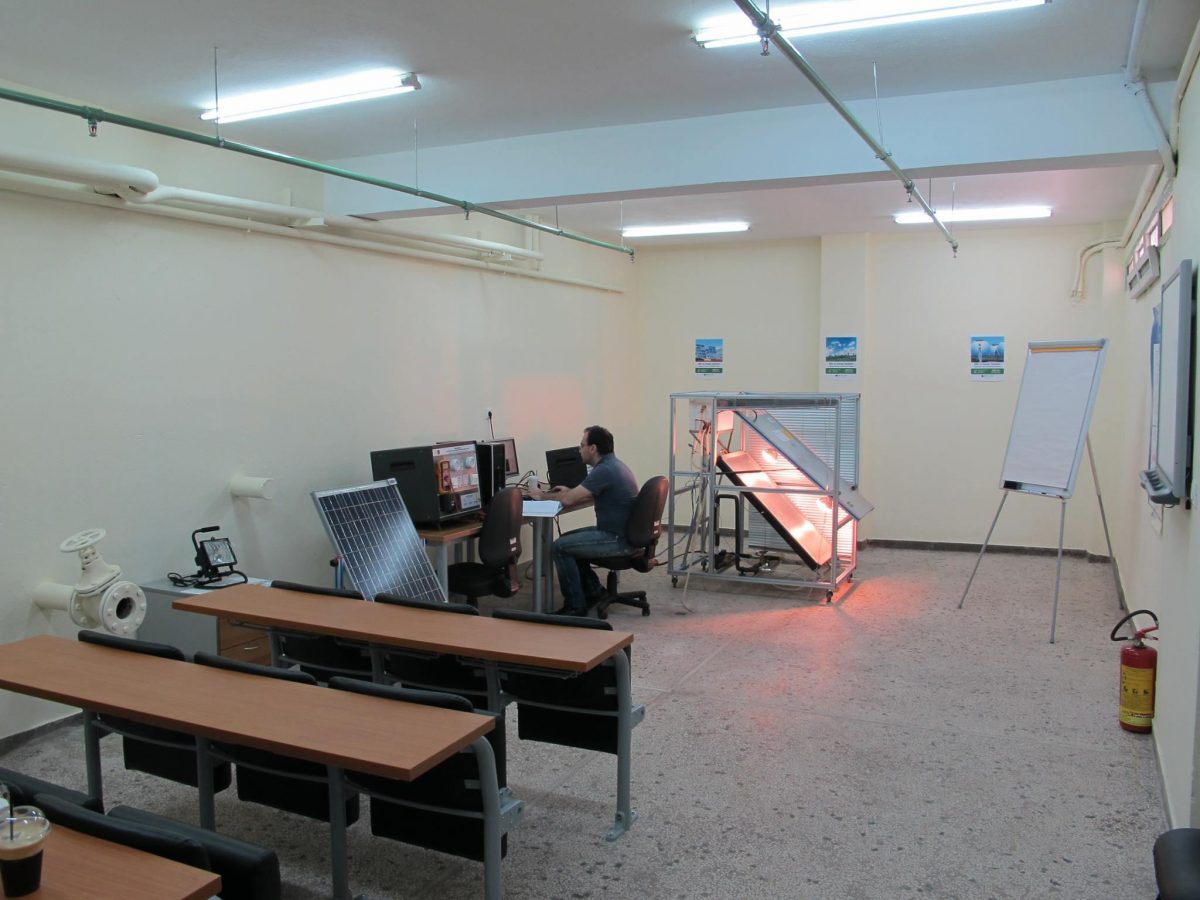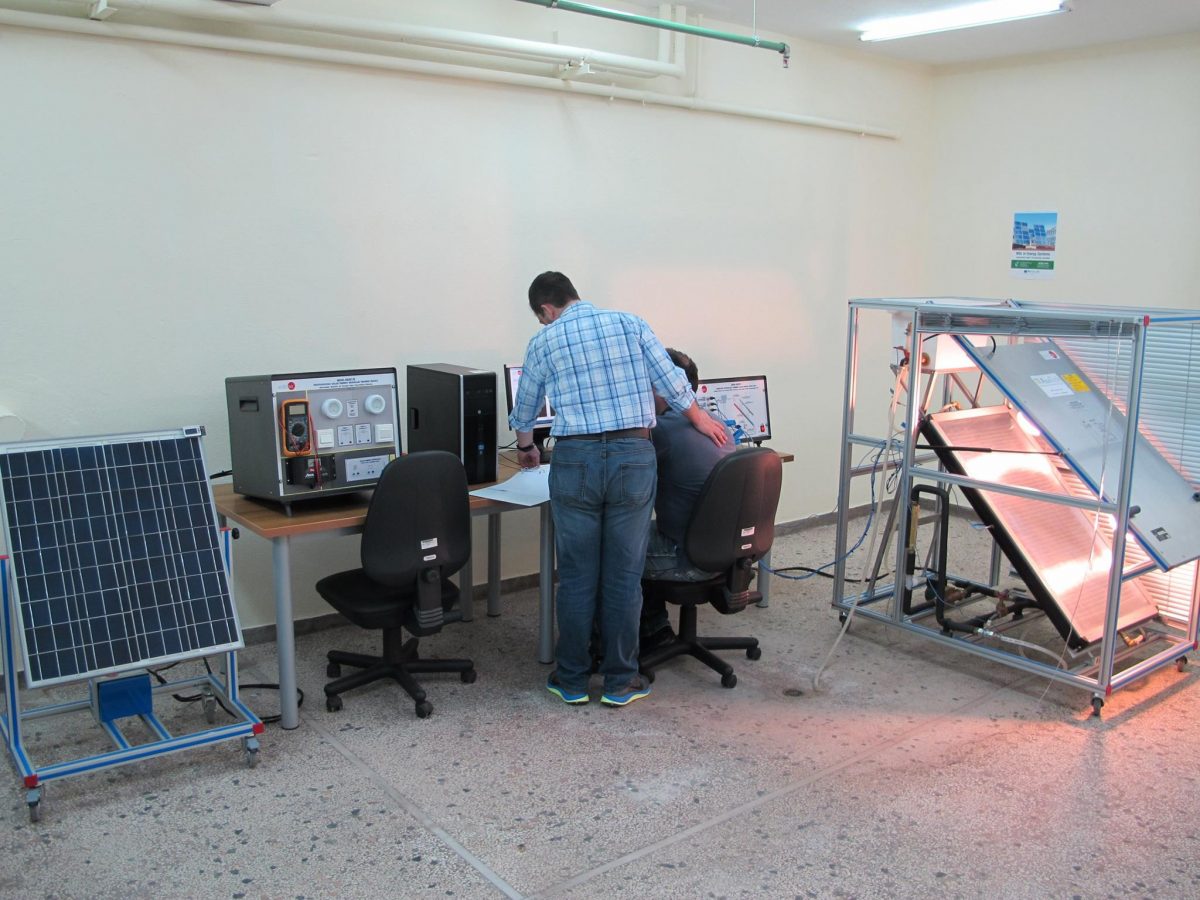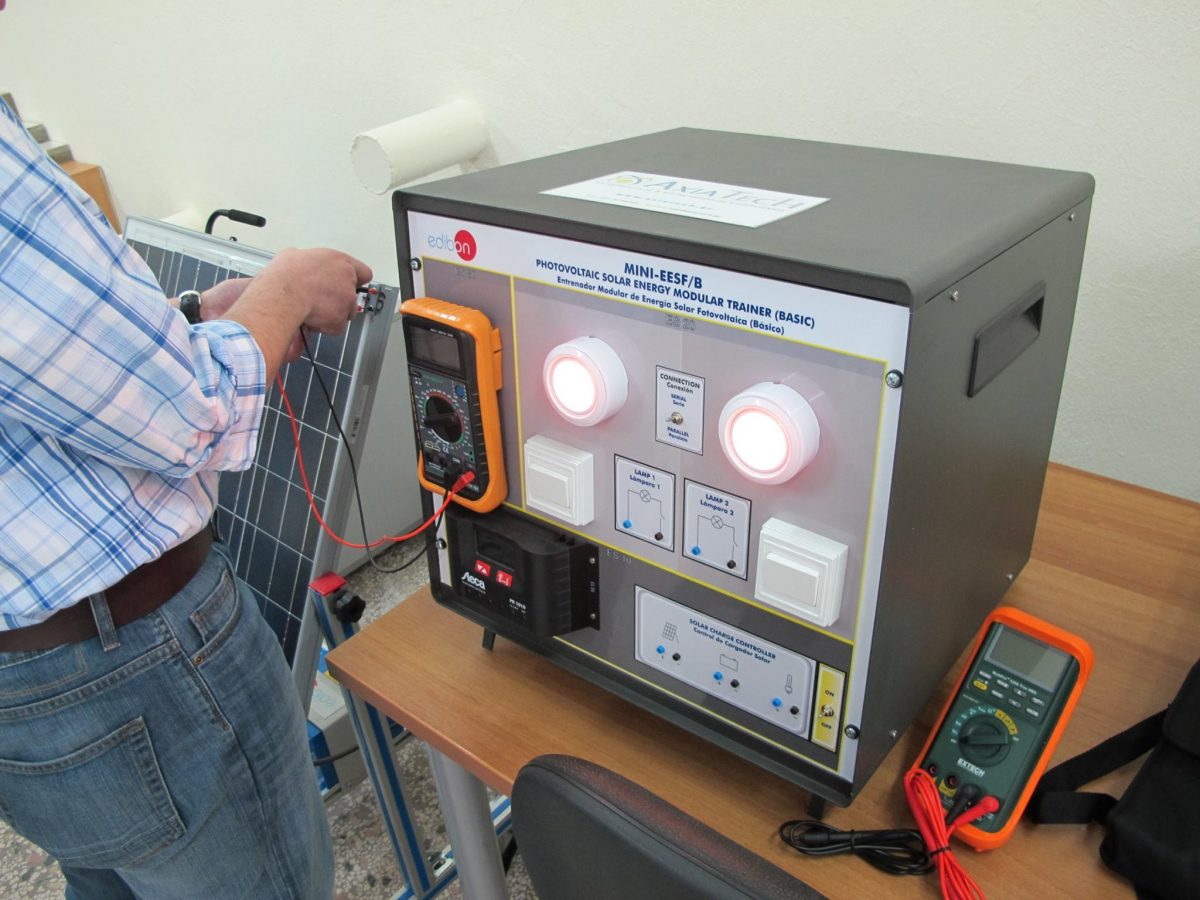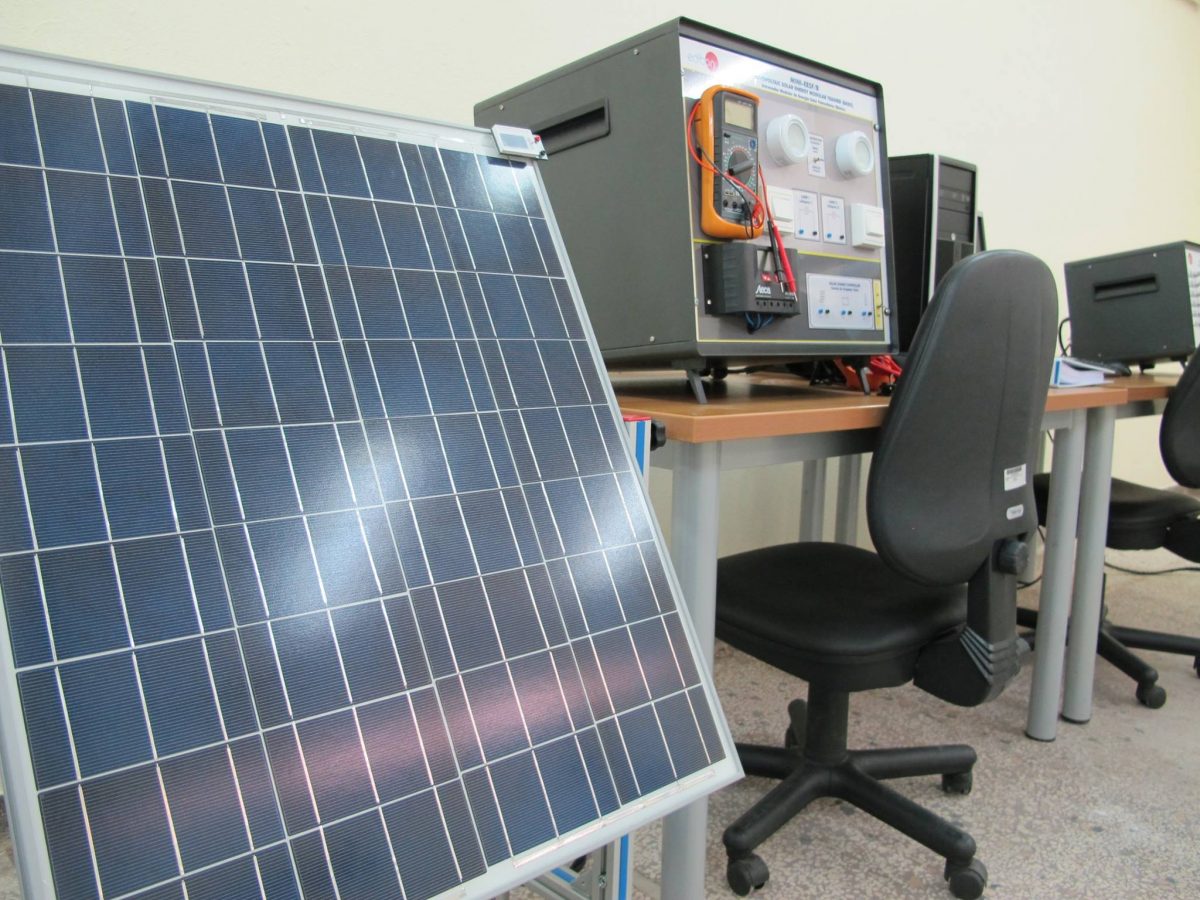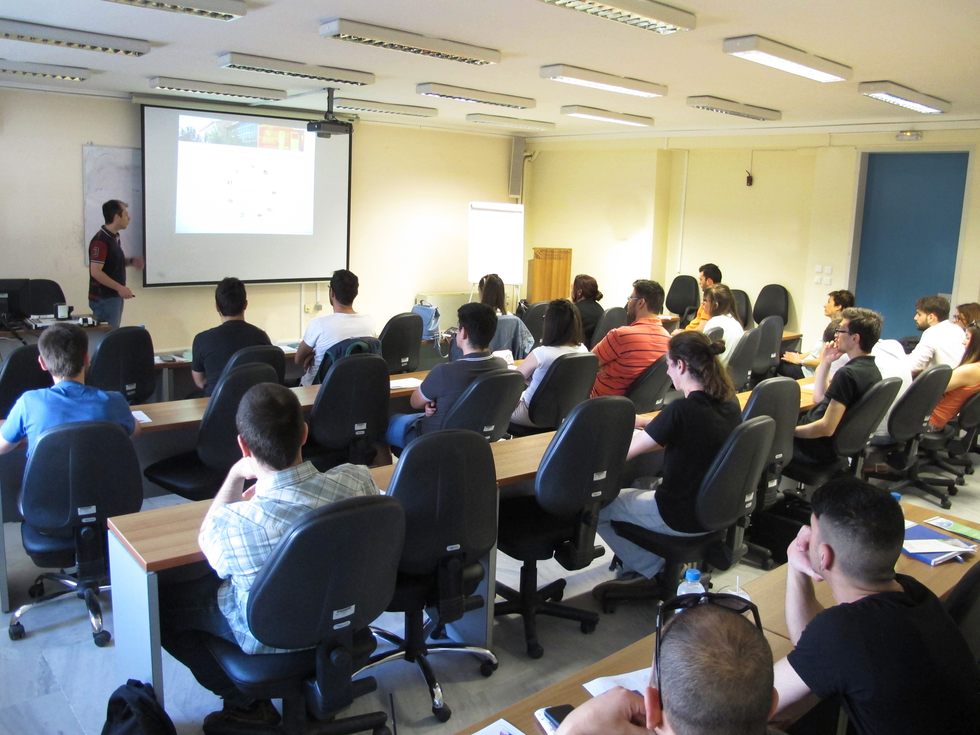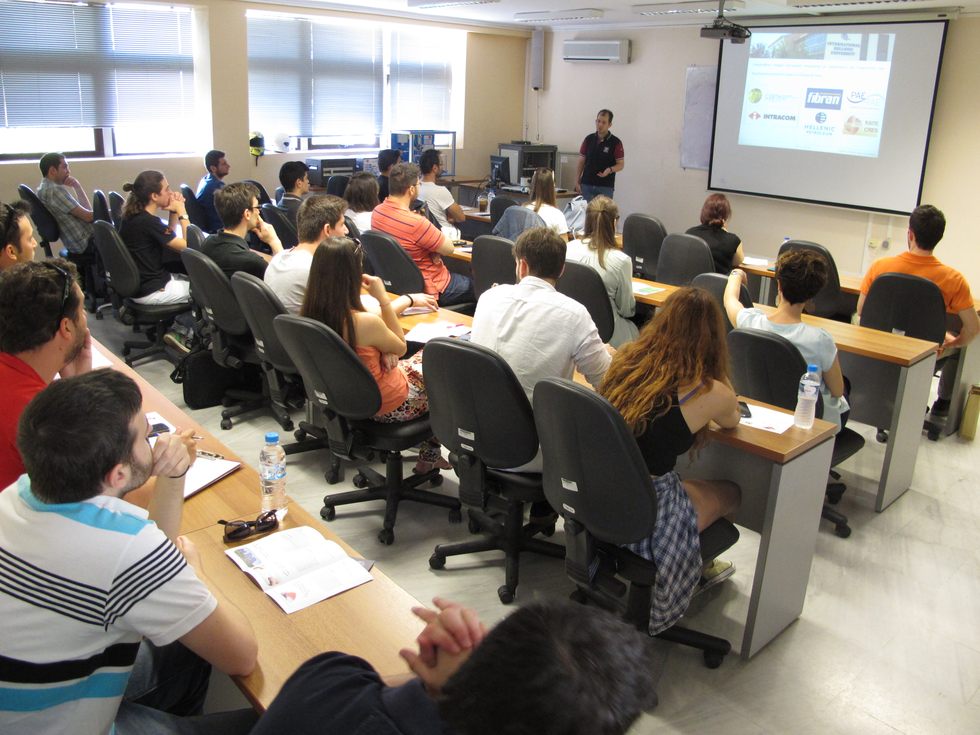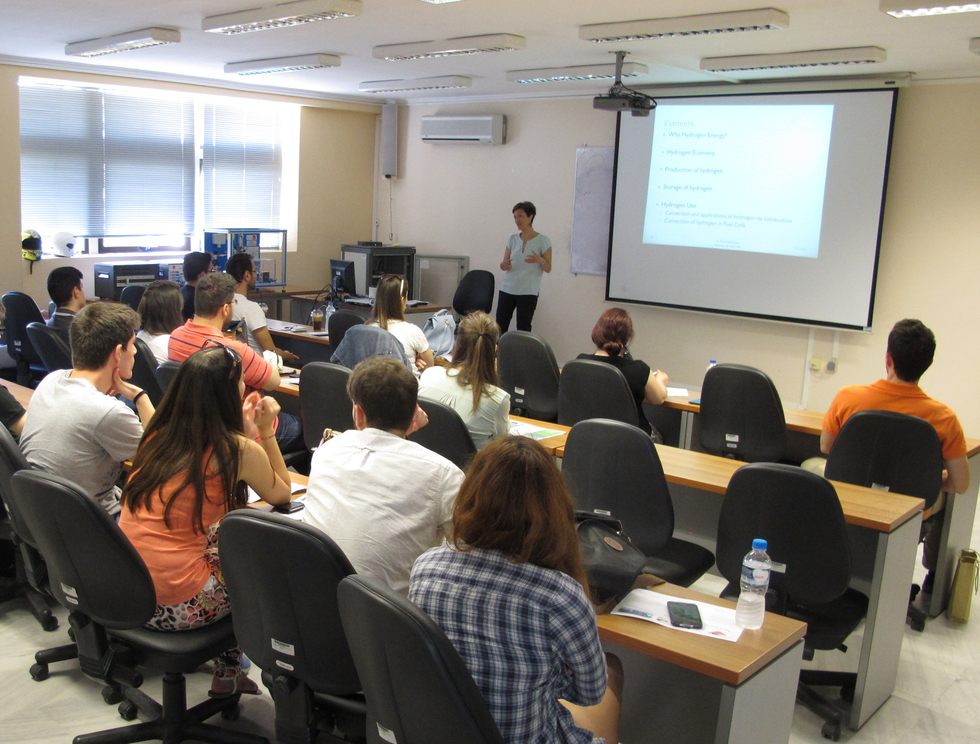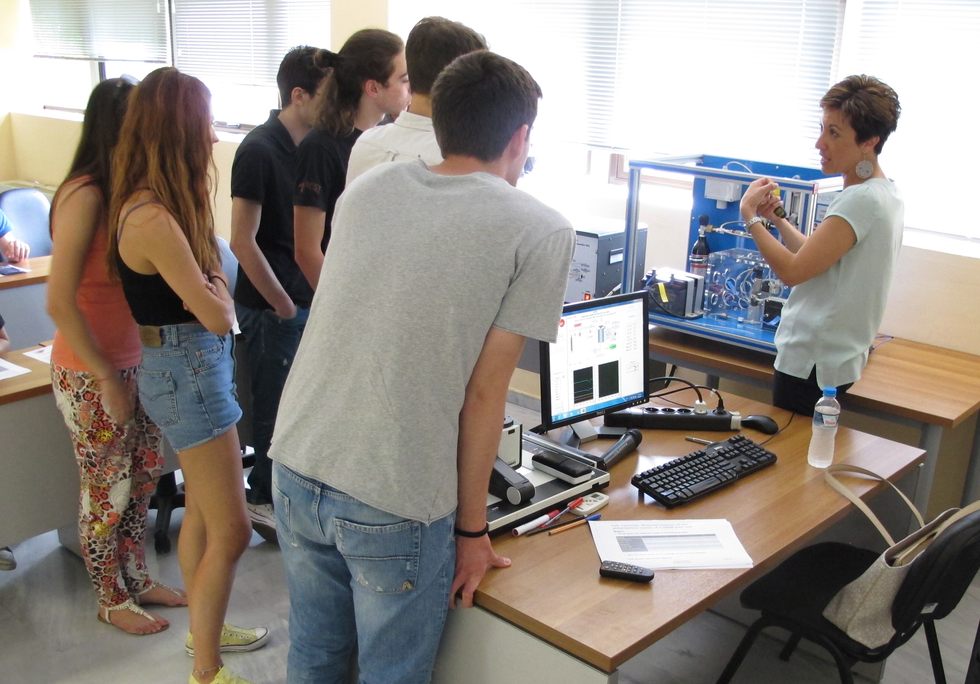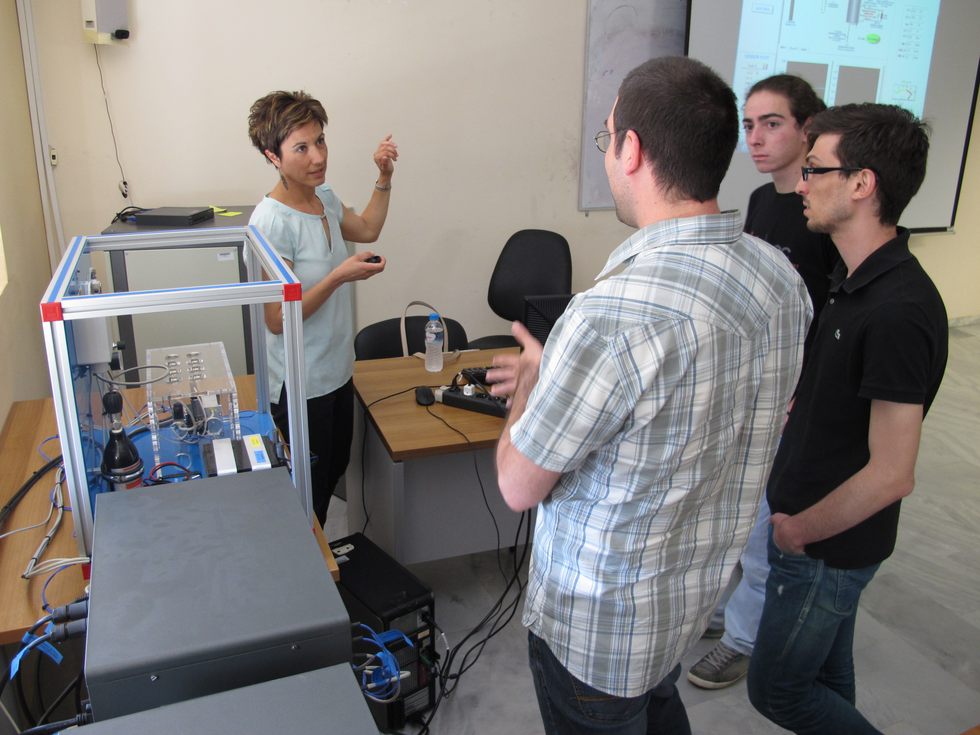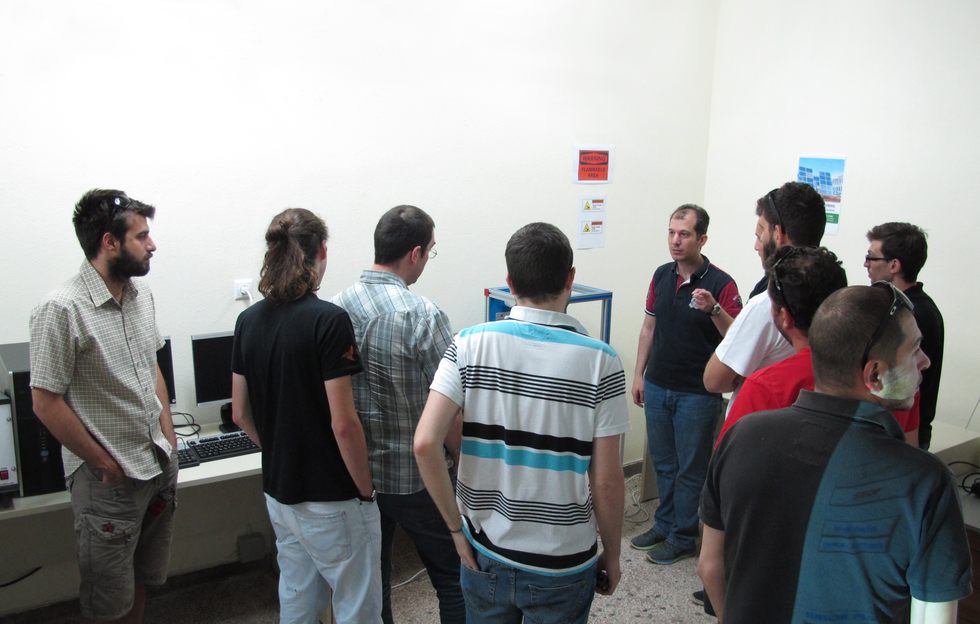Overview
The programme aims to provide postgraduate level education to interested students and is targeted towards graduates including professionals who wish to broaden their knowledge in a range of Energy Issues from a technical point of view with an emphasis on technology and the use of Energy as well as the design, construction and maintenance of Energy Production Systems. Energy and its sustainability will always be a key global issue for modern contemporary societies. In order to really stand out, young professionals in the Energy sector need education that is interdisciplinary: technical as well as economics/management/law related.
The International Hellenic University offers just such a diverse MSc in Energy Systems programme that is open to candidates from different academic disciplines and which has been in high demand since its first intake of students in 2010. Leading academics from prestigious academic institutions from Greece and abroad, together with instructors from public authorities and key players from energy-related organizations, have taught in this programme in the past years.
The programme has been developed to equip graduates of Engineering, Geotechnical and Natural Sciences departments with an in-depth understanding of the fundamental issues of energy in the industrial and commercial sectors. It provides up to date technical knowledge and skills required for achieving energy management, designing of energy-efficient systems and processes, utilisation of renewable energy sources and the cost effective reduction and control of pollution.
This programme is designed for University graduates of Engineering, Geotechnical and Natural Sciences departments who wish to gain further expertise in the engineering aspects of the Energy sector. Τhe School of Science and Technology during the last 3-years had an educational collaboration funded by the DAAD (German Academic Exchange Service), with Hamburg University of Technology (TUHH – Technische Universität Hamburg-Harburg) in order to provide common courses in their respective Masters of Science in the field of Energy. In the frame of this collaboration, students of the MSc in Energy Systems were given the opportunity to follow an elective course in TUHH, which was specifically developed and offered in the academic years 2017-2018 and 2018-2019 to Master students of both universities. Similarly, master students of TUHH in the field of Energy were also able to follow a specifically developed elective course at IHU. Furthermore, students of IHU were given the opportunity to visit TUHH for 3 months and conduct their MSc thesis in Germany. All travel costs, living expenses and accommodation for students in Greece and Germany were covered by the Greek-German collaboration project.
The courses of the programme are taught exclusively in English. The academic staff comes from Universities in Greece and abroad.
Official Government Gazette:

Start date: October 2025
Application deadline: 30 September 2025, or until places are filled
Campus: Thermi, Thessaloniki
Duration/Mode: 18 months (full-time) or 30 months (part-time)/ weekdays evenings / available also in distance learning mode
Taught language: English
Entry requirements: An undergraduate degree from an accredited University
How to apply: Applications system
Language requirements:English language knowledge documented with a relevant certificate, corresponding at least to the State Certificate of Language Learning Level C1 or other certificate proving good knowledge of English. Holders of an undergraduate or postgraduate degree at a Foreign University in English are exempt from this obligation.
Fees: 2600€ (total)




Who can apply
To be considered for the programme, candidates are required to have:
- an undergraduate degree from a recognized University (University graduates of Engineering, Geotechnical and Natural Sciences departments)
- English language knowledge documented with a relevant certificate, corresponding at least to the State Certificate of Language Learning Level C1 or other certificate proving good knowledge of English. Holders of an undergraduate or postgraduate degree at a Foreign University in English are exempt from this obligation.
Courses
During the first term, students are required to follow five mandatory core courses. During the second term, students are required to follow three mandatory core courses tailoring their programme further by two elective courses. Finally, in the third semester, work is dedicated exclusively to the Master’s dissertation. The Master’s dissertation provides a good opportunity to apply theory and concepts learned during the year to a real-world Energy Systems problem or challenge.
During the second term students tailor their programme further by choosing elective courses. The choice of elective courses must sum up to 12 ECTS (2 courses).
| Course | Semester* | Type |
|---|---|---|
| Energy Systems Simulation and Modelling | 1 | Compulsory |
| Processes for Power and Energy Conversion | 1 | Compulsory |
| Project Finance | 1 | Compulsory |
| Project Management | 1 | Compulsory |
| Quantitative Methods | 1 | Compulsory |
| Alternative Fuels | 2 | Compulsory |
| Smart Cities | 2 | Compulsory |
| Solar Power and Thermal Systems | 2 | Compulsory |
| Advanced Design of Energy Processes | 2 | Elective |
| Biofuels and their Assessment | 2 | Elective |
| Energy and Environmental Law | 2 | Elective |
| Energy Transmission and Storage | 2 | Elective |
| Environmental and Energy Policy | 2 | Elective |
| Environmental Hazard Management | 2 | Elective |
| Life Cycle Assessment | 2 | Elective |
| Modelling and Simulation of Building Integrated Solar Energy Systems | 2 | Elective |
| Wind and Hydro Power Systems | 2 | Elective |
* Full-time/Part-time students
The Dissertation
During the third semester, students work on their Master’s Dissertation project, the thematic area of which is relevant to their programme of studies and their interests. The dissertation provides a good opportunity to apply theory and concepts learned in different courses to a real-world energy-related problem or challenge. Students are supervised throughout their projects by a member of the academic faculty and the academic assistants. After submission of the dissertation, students present their projects to classmates and faculty at a special event. In collaboration with our academic associates and their supervisors, a number of students in the past have managed to succeed in publishing their dissertation projects in peer-reviewed journals or presenting them at international conferences. An indicative list of student publications includes:
- Martinopoulos, G. Tsalikis, (2018) «Diffusion and adoption of solar energy conversion systems – The case of Greece», Energy, Volume 144, Pages 800-807
- Andreadou, G. Martinopoulos, (2018) «CAPE-OPEN simulation of waste-to-energy technologies for urban cities», International Journal of Sustainable Energy, 37(1), pp. 96-104
- Apergis, G. Vouzavalis, (2018), Asymmetric pass through of oil prices to gasoline prices: Evidence from a new country sample, Energy Policy,Volume 114,Pages 519-528
- C. Akcaoğlu, G. Martinopoulos, and C. Zafer, (2017) «Experimental Analysis of the Potential Induced Degradation Effect on Organic Solar Cells», International Journal of Photoenergy
- Antoniadis, G. Martinopoulos, (2017) «Simulation of Solar Thermal Systems with Seasonal Storage Operation for Residential Scale Applications», In Procedia Environmental Sciences, Volume 38, 2017, pp. 405-412
- Antoniadis, G. Martinopoulos, (2017) «Optimization of a Building Integrated Solar Thermal System with Seasonal Storage», 1st International Conference on Building Integrated Renewable Energy Systems, Dublin
- Ziogou, I., Zachariadis, T., (2017) “Quantifying the water–energy nexus in Greece”, International Journal of Sustainable Energy, 36 (10), pp. 972-982.
- Zachopoulos, E. Heracleous, (2017), “Overcoming the equilibrium barriers of CO2 hydrogenation to methanol via water sorption: A thermodynamic analysis”, Journal of CO2 Utilization, Volume 21, Pages 360-367
- Bampou, (2017). Green buildings for Egypt: a call for an integrated policy. International Journal of Sustainable Energy, 36(10), 994-1009.
- Kontopoulos, G. Martinopoulos, D. Lazarou, N. Bassiliades, (2016) «An ontology-based decision support tool for optimizing domestic solar hot water system selection», Journal of Cleaner Production, 112, pp. 4636-4646
- Anastaselos D.A., Oxizidis S., Manoudis A., Papadopoulos A.M. (2016), Environmental performance of energy systems of residential buildings: towards Sustainable Communities, Sustainable Cities and Society, 20, 96-108.
- Rossios, K. Sardi, G. Martinopoulos, (2015) «Numerical Simulation of LNG Evaporation Inside Semi-Trailer Trucks Used For the Transportation of LNG to Small Scale Terminals and Refueling Stations: Parameters and Implications», 8th GRACM International Congress on Computational Mechanics, Greece.
- Ipsakis D., Kraia T., Fylaki P., Ouzounidou M., Papadopoulou S., Voutetakis S. and Marnellos G., “Design and feasibility study of an integrated process for the exploitation of H2S from the Black Sea for energy and H2SO4 production”, Proceedings of the 10th Panhellenic Chemical Engineering Conference, Patra, 4-6/6/2015
- Ziogou I. and Zachariadis T., Quantifying the Water-energy Nexus in Greece, Proceedings of the 14th International Conference on Environmental Science and Technology Rhodes, Greece, 3-5 September 2015
- Dogan K., Martinopoulos G., “Blade Element Momentum Theory and CFD modeling as a tool for optimizing wind turbine blade design” World Renewable Energy Congress WREC XIII, London, 2014.
- Dimitriadis, D. Missirlis, G. Martinopoulos, “Investigation of the performance of a horizontal axis wind turbine with the use of blade element momentum theory and CFD computations”, European Wind Energy Association Conference 2014 – Barcelona
- Anastasiou F. and Martinopoulos G., “Solar Air Conditioning Systems As A Step Towards Nearly Net Zero Energy Buildings”, 10th Conference on Renewable Energy Sources, Thessaloniki, Greece, 2014 (In Greek)
- Martinopoulos G. and Tsalikis G. (2014) “Active Solar Heating Systems for Energy Efficient Buildings in Greece: A Technical Economic and Environmental Evaluation”, Energy and Buildings, Vol. 68, Part A, p. 130-137.
- Martinopoulos, G.Tsalikis, “Active solar heating systems for energy efficient buildings in Greece: A technical economic and environmental evaluation”, Energy and Buildings, Volume 68, Part A, January 2014, Pages 130-137.
- Bitos C. and Kiartzis S., “Energy Demand Analysis and Energy Saving Potentials in the Greek Road Transport Sector”, 7th International Scientific Conference on Energy and Climate Change, Athens, 2014
- Kanellakis M., G. Martinopoulos and T. Zachariadis (2013). European Energy Policy–A Review. Energy Policy, Vol. 62, p. 1020-1030
- Charalampous, G. & Madlener, R. (2013). “Risk Management and Portfolio Optimization for Gas- and Coal-fired Power Plants in Germany: A Multivariate GARCH Approach,” FCN Working Papers 23/2013, E.ON Energy Research Center, Future Energy Consumer Needs and Behavior (FCN).
- Charalampous, G. & Madlener, R. (2013). “Risk Management and Portfolio Optimization for Gas- and Coal-fired Power Plants in Germany: A Multivariate GARCH Approach,” Proceedings of 14th IAEE European Energy Conference, Rome, Italy.
- Τ. Dergiades, R. Madlener, and G. Christofidou, “The Nexus between Natural Gas Spot and Futures Prices at NYMEX: Do Weather Shocks and Non-Linear Causality in Low Frequencies Matter?,” FCN Working Papers 17/2012, E.ON Energy Research Center, Future Energy Consumer Needs and Behavior (FCN)
Duration of studies
The MSc in Energy Systems (full-time) is a 18-month programme taught over three terms. Lectures mainly take place on weekday evenings. The MSc in Energy Systems programme is also available in part-time mode over 30 months for those who cannot commit to a full-time programme either for work or other reasons.
Study Guide
Handling Objections and Complaints

Students’ Complaints Procedure
Students who wish to make a complaint concerning the quality of an academic programme, any related service or member of the academic or administrative staff should first do so at the local level, by raising the issue with the individual, department or service provider directly involved. Issues of concern may often be resolved more quickly and effectively at this stage.
If a student decides to make a complaint, this will be taken seriously, and confidentiality will be respected. Investigations will be carried out thoroughly and the issue determined fairly by someone who is not directly involved in the complaint. It should be noted, however, that complaint resolution may not be possible without revealing the identity of the complainant to the subject of the complaint and anonymous complaints will not be investigated. Allegations which are found to be unsubstantiated or malicious will be dismissed.

Appeal Committee
Students are entitled to submit an appeal to an Appeal Committee, appointed by the Governing Board, with respect to any decision concerning their status at the University. A student submitting an appeal is invited to exercise his/her right to be heard, according to Article 6 of the Greek Administrative Procedure Code.
Appeal Committee examines any appeals against decisions of the Governing Board and/or the General Assembly of the School according to Article 24 of the Greek Administrative Code of Procedure.

Student Ombudsman
Students also have the right to appeal to the Student Ombudsman. There are three independent offices under the name “Student Ombudsman” at I.H.U: a) at the University Campus of Thessaloniki, b) at the University Campus of Serres, and c) at the University Campus of Kavala.
The Academic Faculty
Faculty Members
 |
Professor Maria Drakaki
Dean of the School +30 2310 807524 mdrakaki@ihu.gr |
 |
Professor Panayiotis Bozanis
Deputy Dean of the School +30 2310 807501 pbozanis@ihu.gr |
 |
Professor Eleni Heracleous
e.heracleous@ihu.edu.gr |
 |
Professor Christos Tjortjis
+30 2310 807576 c.tjortjis@ihu.edu.gr |
 |
Dr Vassilios Peristeras Associate Professor
+30 2310 807539 v.peristeras@ihu.edu.gr |
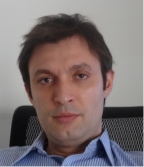 |
Dr Dimitrios Tzetzis Associate Professor
+30 2310 807548 d.tzetzis@ihu.edu.gr |
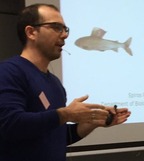 |
Dr Spiros Papakostas Assistant Professor
spapakostas@ihu.edu.gr |
Other Research and Teaching Personnel
 | Dr Christos Berberidis Research and Teaching Staff +30 2310 807534 c.berberidis@ihu.edu.gr |
 | Dr Dimitrios Baltatzis Research and Teaching Staff d.baltatzis@ihu.edu.gr |
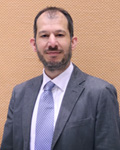 | Dr Georgios Martinopoulos Academic Associate +30 2310 807533 g.martinopoulos@ihu.edu.gr |
 | Dr Leonidas Akritidis Academic Associate |
 | Dr Dimitrios Karapiperis Academic Associate |
 | Dr Paraskevas Koukaras Academic Associate |
 | Dr Nikolaos Serketzis Academic Associate |
 | Dr Katerina Tzafilkou Academic Associate |
Collaborating Instructors
| Dr Nikolaos Apergis |
Professor
University of Piraeus
|
| Dr Constantinos Evagellinos |
Associate Professor
University of Aegean
|
| Dr Estelle Lucienne Anna Herlyn |
FOM University of Applied Sciences for Economy and Management
|
| Dr Dimitrios Kanellopoulos |
Public Power Company Renewables S.A. (PPC)
Natural Resources Evaluation & Certification Department Director and Solar Energy Department Acting Director
|
| Professor Athanasios G. Konstandopoulos |
Aristotle University of Thessaloniki
Centre for Research and Technology (CERTH) Director
|
| Professor Reinhard Madlener |
RWTH Aachen University, Germany
|
| Dr Isaac A. Meir |
Associate Professor
Ben-Gurion University of the Negev, Israel
|
| Professor Nikos Nomikos |
Professor of Shipping Risk Management, Director of MSc Shipping, Trade and Finance, Cass Business School
City University, London UK
|
| Dr Theodore C. Panagos |
Former Vice Chairman
Regulatory Authority for Energy, Greece
|
| Professor Agis Papadopoulos |
Aristotle University of Thessaloniki
|
| Dr Panos Pouliasis |
Senior Lecturer in Energy/Commodities and Finance, Cass Business School
City University, London UK
|
| Dr Dimitrios Psychoyios |
Associate Professor
University of Piraeus
|
| Professor Franz Josef Radermacher |
University of Ulm, IHU Honorary Doctorate
|
| Professor Matheos Santamouris |
National and Kapodistrian University of Athens
|
| Professor Eftichios S. Sartzetakis |
University of Macedonia
|
| Professor Rudolf Schilling |
Former Vice Chairman
Technical University of Munich, Germany
|
| Professor Jürgen Schmude |
Chair for “Economic Geography and Tourism Research” Department for Geography, Ludwig-Maximilians University (LMU), Munich
|
| Dr George Skevis |
Senior Researcher
Centre for Research and Technology Hellas (CERTH)
|
| Professor Marcus Wagner |
University of Augsburg, Chair for Management
|
| Professor Anastasios Xepapadeas |
Athens University of Economics and Business
|
| Dr Theodoros Zachariadis |
Associate Professor
Technical University of Cyprus, Cyprus
|
Labs
Students make extensive use of our recently set up Energy Lab. Facilities include a brand new computer-controlled Photovoltaic system, a computer-controlled Solar Thermal system, a computer controlled PEM Fuel cell, a computer controlled stirling engine, a 15kW organic Rankine cycle, a wind tunnel as well as an IR camera and environmental meters that students use during their studies and dissertation research.
Fees & Financing
Fees
The programme fees for the MSc in Energy Systems for the 2024-25 academic year is 2600€*. The amount is payable in two instalments for the full time mode or in four instalments for the part time mode at the beginning of each semester. The fees are also eligible for financing through LAEK 0,45% – OAED programme.
*For the 2024-25 academic year a tuition fee reduction of 1400€ (from the initial amount of 4000€) will be provided to all accepted students.
Deposits
If you have been accepted to a postgraduate programme, you will need to make a payment of the deposit of 500 Euros to secure your place. This amount will count towards the first instalment of your tuition fees. The deposit is non-refundable once you have commenced your studies at the IHU. Prior to that, a refund can be made but a 20% administrative fee will be retained. The deposit can be paid by bank transfer or bank draft. Credit card payments can be made through electronic banking (contact your Bank as handling fees may apply).
Scholarships
The School of Science & Technology offers a number of scholarships for the programmes it offers, covering a significant proportion of the fees. These scholarships are competitive. Award criteria include the quality of the first degree, the undergraduate grades of the candidate, his/her command of the English language and overall profile. Candidates for scholarships should include a separate letter with their application documents in which they request to be considered for a scholarship, stating the reasons why they think they qualify.
Programme announcement – Admissions
Next MSc in Energy Systems class starts in October 2025. Interested parties are invited to submit their application by 30 September 2025, or until places are filled, by following instructions at the application page.
How to apply: Applications system
Ideal Career path
There is a considerable demand for environmentally aware energy specialists with in-depth technical as well as economics knowledge and practical skills. Graduates of this program have been recruited by companies and organisations competing in the energy sector. A number of our MSc graduates follow further research studies leading to PhD degrees. The following indicative employment opportunities are available to our graduates after the completion of the MSc in Energy Systems:
- Senior technical positions in energy engineering
- Managerial positions in the booming Energy as well as Utilities management
- With Government policymaking
In addition to technical skills gained through study, our students benefit from the University’s excellent Careers Office in order to attain essential Soft Skills (e.g. communication skills, interview preparation, CV writing etc.) to better prepare for the job market.
Location
The MSc in Energy Systems takes place in the facilities of the School of Science & Technology of the University Center of International Programmes of Studies of the International Hellenic University in Thermi-Thessaloniki.
Contact
Email – Telephone For issues/information related to the Programmes of Study of the School, you can contact us by either e-mail infotech@ihu.edu.gr or phone at +30 2310 807 529. Postal Address School of Science and Technology 14th km Thessaloniki – N. Moudania 57001 Thermi Thessaloniki, Greece


